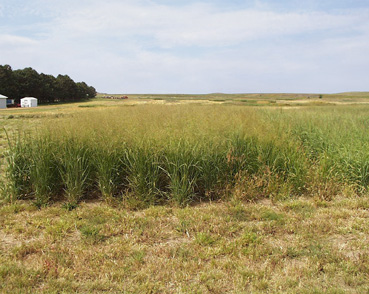The largest and most diverse group of fungi, Dothideomycetes are found on every continent and play key roles in maintaining the local ecosystems by degrading biomass and contributing to regulating the carbon cycle. Many of these fungi are also tolerant of environmental extremes such as heat, humidity and cold. Among the members of this group are pathogens that infect nearly every major crop used for food, fiber or fuel. As crop rotations are being reduced, fewer crops are being grown on larger acreages, making them more susceptible to severe crop losses due to disease. Understanding the plant pathogens of these crops could reduce fertilizer use, which could in turn help reduce greenhouse gas emissions.
To better understand the members of this group, the project calls for sequencing three kinds of Dothideomycetes. The first group is composed of biofuel crop pathogens such as Brachypodium, eucalyptus, poplar and switchgrass. A second group focuses on pathogens of hosts currently being sequenced, and on species that have “unusual” biology such as fungi adapted to harsh environmental conditions that could have novel enzymes useful for a number of applications including biofuel production. The third group looks at pathogens with sequenced reference genomes.
Principal Investigators: Stephen Goodwin, Purdue University
Program: CSP 2010
